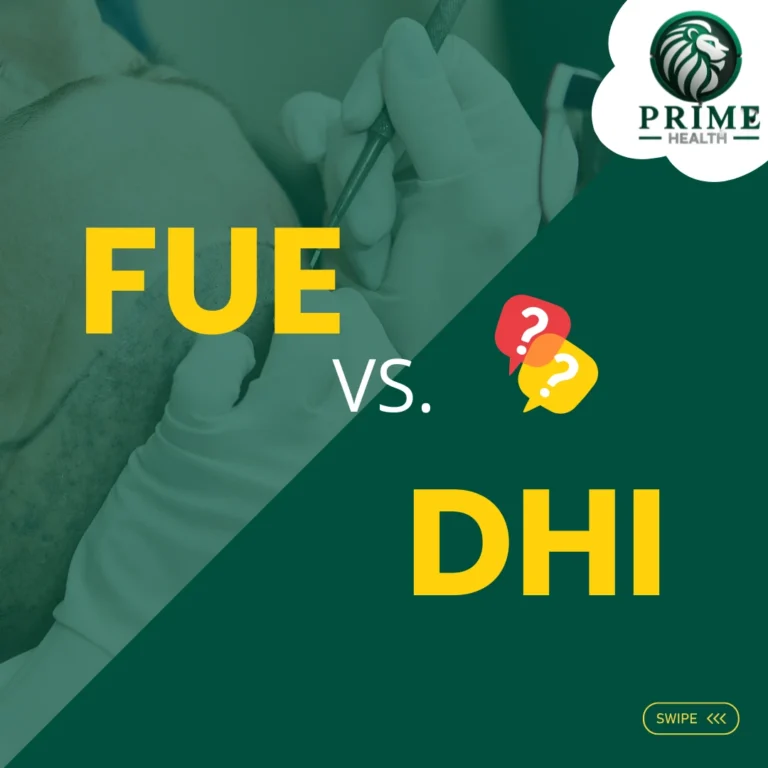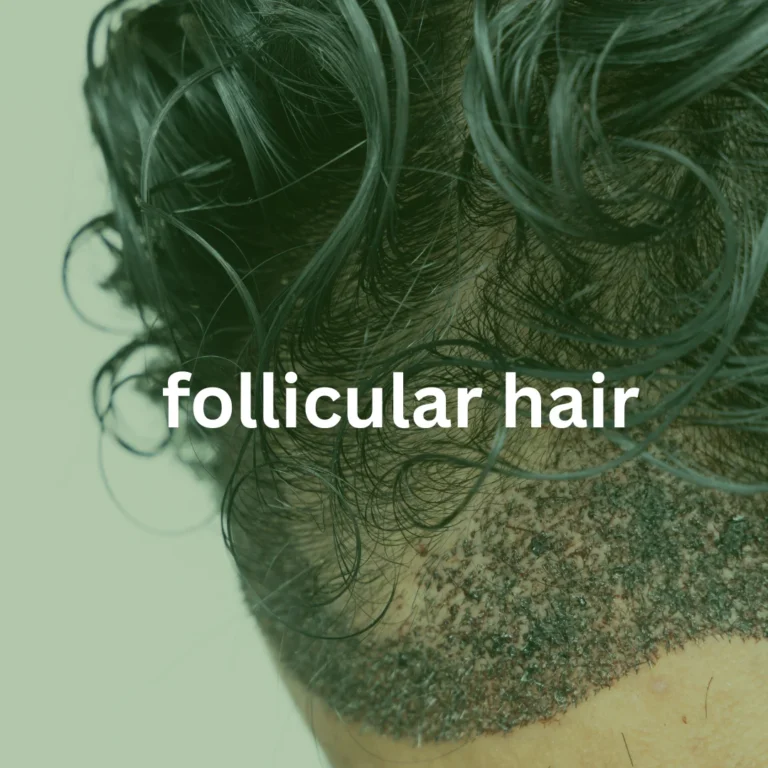FUE Sapphire and DHI: Which Hair Transplant Method is Best for You?
If you’re thinking about restoring your hair or beard, you’ve likely encountered two leading techniques: FUE Sapphire and DHI. Both represent the latest advancements in hair transplant technology, offering natural-looking, long-lasting results.
While both aim to restore hair density, they differ significantly in technique, precision, and recovery experience. Choosing the right method depends on your hair restoration goals, the area being treated, and your recovery preferences.
At Prime Health, we provide both options and guide patients to select the method best suited for their individual needs.
Introduction to Hair Transplants in Turkey
If you’re thinking about restoring your hair or beard, you’ve likely encountered two leading techniques: FUE Sapphire and DHI. Both represent the latest advancements in hair transplant technology, offering natural-looking, long-lasting results.
While both aim to restore hair density, they differ significantly in technique, precision, and recovery experience. Choosing the right method depends on your hair restoration goals, the area being treated, and your recovery preferences.
At Prime Health, we provide both options and guide patients to select the method best suited for their individual needs.
Overview of Hair Transplant Techniques
Follicular Unit Transplantation (FUT) – Traditional Method Explained
FUT, also called strip surgery, involves removing a strip of donor tissue from the back of the scalp. Hair follicles are then separated and implanted into thinning areas. While effective, this method can leave a linear scar and requires longer recovery.
Follicular Unit Extraction (FUE) – How It Works
FUE extracts individual hair follicles directly from the donor area, leaving no linear scar. This minimally invasive approach allows faster healing and less visible scarring.
Direct Hair Implantation (DHI) – Benefits and Process
DHI uses a Choi Implanter Pen to implant hair follicles directly without pre-made incisions. This technique gives surgeons precise control over depth, angle, and direction, making it ideal for detailed areas like the hairline or beard edges.
Sapphire FUE – Advanced FUE Technique for Natural Results
Sapphire FUE improves upon traditional FUE by using ultra-sharp sapphire blades to create micro-incisions. This reduces trauma to the scalp, promotes faster healing, and allows higher hair density for natural-looking results.
FUE Sapphire and DHI – Detailed Comparison
Procedure Differences Between FUE Sapphire and DHI
- FUE Sapphire: Micro-incisions created with sapphire blades; follicles implanted afterward.
- DHI: Hair follicles implanted directly with Choi pen, no pre-made incisions.
Recovery Time, Pain, and Healing
- FUE Sapphire: Minimally invasive, faster healing, small scarring.
- DHI: Precision placement may reduce trauma; recovery can be faster in small areas.
Cost Comparison: FUE Sapphire and DHI
- Costs vary depending on area size and surgeon experience. Generally, DHI is slightly more expensive due to its precision and time-intensive nature.
Long-Term Results and Hair Growth Quality
Both methods offer natural, long-lasting results. DHI can provide extra precision in angles and hairline shaping, while Sapphire FUE excels in achieving high density for larger areas.
Advantages and Disadvantages of Each Method
- FUE Sapphire Advantages: Covers large areas, high density, minimal scarring.
- DHI Advantages: Perfect for small, detailed areas, precise angles, natural hairline.
- Disadvantages: DHI is more costly and time-consuming; FUE Sapphire may not match DHI precision in small zones.
Who Is the Right Candidate for FUE Sapphire or DHI?
Factors Affecting Your Hair Transplant Choice
- Desired coverage area (full beard vs. detailed hairline)
- Hair density goals
- Recovery time preferences
Age, Hair Type, and Donor Area Considerations
- Younger patients with good donor density benefit from either technique.
- Hair thickness, scalp elasticity, and donor area size influence method choice.
Latest Advances in Hair Transplant Technology
Needle-Free Anesthesia and Pain Reduction
Modern anesthesia techniques reduce discomfort during procedures, making both FUE Sapphire and DHI virtually painless.
Precision Tools for Natural Hairline Design
Advanced implanters and sapphire blades allow surgeons to craft natural hairlines and achieve better density control.
Frequently Asked Questions (FAQ)
What Is the Most Effective Hair Transplant Method?
Effectiveness depends on your goals: DHI for precision, FUE Sapphire for larger coverage.
Is FUE or DHI Better?
Neither is universally better—each has specific strengths depending on the area and desired results.
Can Transplanted Hair Fall Out Again?
Once follicles are properly implanted and healthy, they usually grow permanently, though overall hair thinning may continue naturally.
Why Are Turkish Hair Transplants So Popular?
Turkey offers high-quality procedures with experienced surgeons at competitive prices, making it a preferred destination worldwide.
Is DHI More Expensive Than FUE Sapphire?
Yes, typically, due to its precision and time-intensive technique.
What Are the Risks and Disadvantages of Each Method?
- Minor scarring, redness, or swelling may occur.
- DHI requires a skilled surgeon for optimal results.
- FUE Sapphire may require multiple sessions for very high density.
Conclusion – Choosing Between FUE Sapphire and DHI
Both FUE Sapphire and DHI are excellent hair transplant techniques. Your choice depends on the area to be treated, desired density, precision needs, and recovery preferences. A consultation at Prime Health ensures the most natural and satisfying results tailored to your goals.

Ready to Take the First Step?
whether the dilemma FUE Sapphire and DHI is solved or not we’re here to help you look and feel your best. Book your free consultation today and let’s talk about what works for you.
For more information
We invite you to visit the FUE Hair Transplant and DHI hair transplant sections on our website for detailed insights.
also check Our FAQ section to answers to common questions.
Otherwise we advise reach out to us directly:
you can send us a mail : Contact@Primehealth-tr.com
Contact us Via WhatsApp: +90 551 960 84 95




